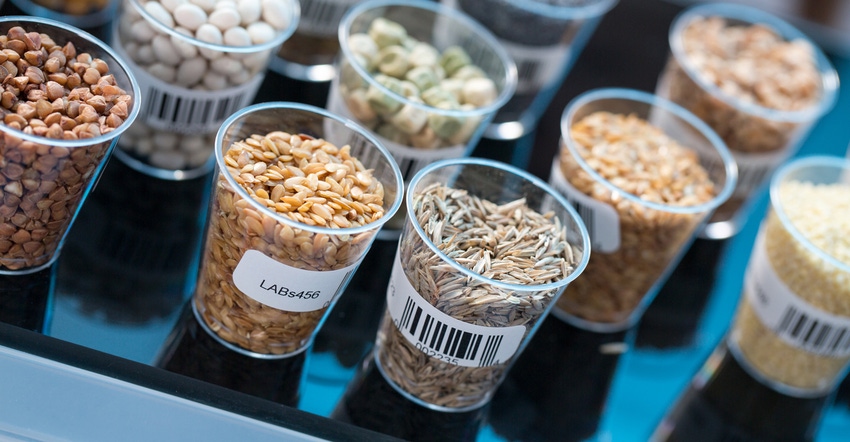March 25, 2020

It seems as though every bit of oxygen available in the news cycle is taken up by COVID-19. In Missouri, our first case was announced March 7, and by the following Monday, some grocery store shelves were empty. Consumers eagerly rushed to the store to stock up on important food and household items, leaving very little for the next customer.
Times like this remind us of the important role agriculture plays in our everyday lives. The eggs, meat, milk and other agriculture products we put on the shelf provide American consumers with the confidence that they need.
The state of Missouri’s response, led by Gov. Mike Parson’s steady hand, has been moving at a rapid pace. As a farmer, he knows the importance of prioritizing agriculture and streamlining regulatory restrictions for farmers and ranchers where possible.
Times like these also remind me of the role government can play in facilitating commerce and keeping safe food in the grocery stores.
One division in the Missouri Department of Agriculture does just that. Our Grain Inspection and Warehousing Division has four programs that keep agricultural commodities flowing, protect the financial integrity in many small towns, provide third-party checkoff fund processing and mediate agricultural disputes.
Here's a look at the four programs:
Grain Inspection Services. This program samples, inspects and grades grain and various commodities throughout the state. As an “Official Service Provider,” our inspectors are federally licensed to grade corn, soybeans, wheat, sorghum, oats, rice, lentils and edible beans.
The primary function of our grain inspection team is to facilitate the marketing and sale of grain by providing accurate and consistent inspection and weighing services. By following federal standards to determine quality, GIS assures both the buyer and seller of grain of an impartial, reliable assessment of their grain shipments.
Many times, this team is the final inspection point for grain leaving the elevator, destined for domestic and export shipments.
Grain Regulatory Services. In our rural communities, local grain elevators facilitate millions of dollars in financial transactions. We know it’s important to protect farmers, ranchers and agribusinesses from unexpected financial losses.
Our Grain Regulatory Services team licenses and regulates grain warehouses and grain dealers in Missouri, offering a means of protection to Missouri’s grain producers in case of warehouse or grain dealer insolvency. Any person or business buying grain from producers must have a valid grain dealer license.
Any grain elevator in Missouri that stores grain for others must have a valid state or federal grain warehouse license. Auditors with the department conduct random, unannounced audits to verify grain inventory and ensure licensees are fiscally sound and in compliance with the laws, including required bonds and securities.
Commodity Services Program. Under this program, we provide commodity councils with an organized procedure for collection and distribution of commodity checkoff funds for nine Missouri commodities (beef, corn, soybeans, rice, sheep and wool, wine, aquaculture, peaches, and apples). The program also assists in facilitating commodity council board elections.
Missouri Agricultural Mediation Program. This service assists farmers and ranchers, their creditors, and others directly affected in resolving disputes. It helps in reducing participants’ costs associated with administrative appeals and litigation. Mediation services for agricultural-related issues are available to all farmers and ranchers.
Situations, including tenant-landlord, borrower-lender and neighbor-neighbor, may be settled using mediation as a form of dispute resolution. All USDA program participants who have disputes with USDA agencies may use mediation to help resolve the dispute.
Mediation does not favor one side or the other, but helps both consider the situation. Unlike a judge or an arbitrator, a mediator cannot decide what is right or require any specific action.
The Grain Inspection and Warehousing Division is led by Ken Henderson, who has been a team member in this division for more than 30 years. Henderson worked his way into this leadership role after serving as a grain regulatory auditor for 21 years and as the grain regulatory program manager for more than seven years.
To learn more about the Grain Inspection and Warehousing Division, visit agriculture.mo.gov.
Chinn is the director of the Missouri Department of Agriculture and a hog producer from Clarence, Mo.
About the Author(s)
You May Also Like




